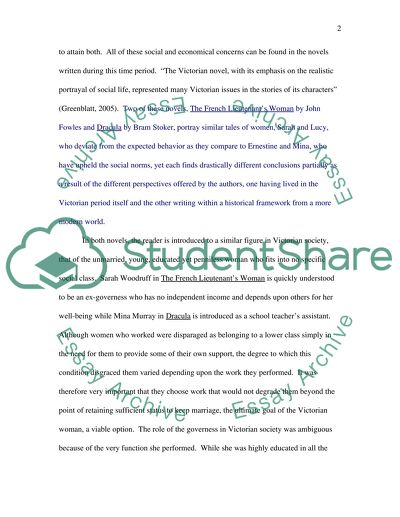Cite this document
(The Reign of Queen Victoria Literature review Example | Topics and Well Written Essays - 2500 words, n.d.)
The Reign of Queen Victoria Literature review Example | Topics and Well Written Essays - 2500 words. Retrieved from https://studentshare.org/sociology/1541389-compare-the-representation-of-the-victorian-woman-in-the-french-lieutenants-woman-and-dracula
The Reign of Queen Victoria Literature review Example | Topics and Well Written Essays - 2500 words. Retrieved from https://studentshare.org/sociology/1541389-compare-the-representation-of-the-victorian-woman-in-the-french-lieutenants-woman-and-dracula
(The Reign of Queen Victoria Literature Review Example | Topics and Well Written Essays - 2500 Words)
The Reign of Queen Victoria Literature Review Example | Topics and Well Written Essays - 2500 Words. https://studentshare.org/sociology/1541389-compare-the-representation-of-the-victorian-woman-in-the-french-lieutenants-woman-and-dracula.
The Reign of Queen Victoria Literature Review Example | Topics and Well Written Essays - 2500 Words. https://studentshare.org/sociology/1541389-compare-the-representation-of-the-victorian-woman-in-the-french-lieutenants-woman-and-dracula.
“The Reign of Queen Victoria Literature Review Example | Topics and Well Written Essays - 2500 Words”. https://studentshare.org/sociology/1541389-compare-the-representation-of-the-victorian-woman-in-the-french-lieutenants-woman-and-dracula.


